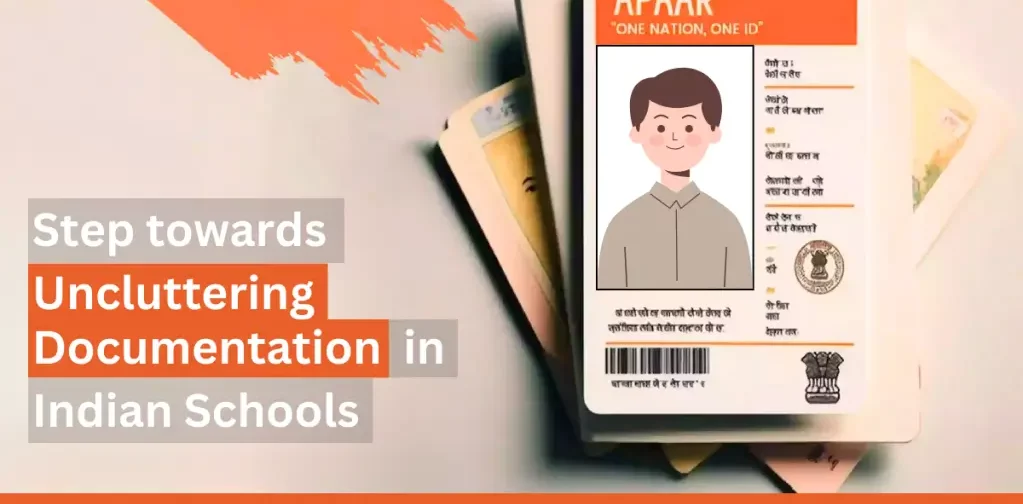
The Union Education Ministry of India has recently launched the Automated Permanent Academic Account Registry (APAAR) to provide a unique number to each student in the country. The APPAR ID, an Ecosystem registry of Edulocker, will be treated as a lifelong identification number and track students’ educational progress, achievements, and other particulars throughout their academic careers. It is a step towards providing easy accessibility to degrees nationwide, as envisioned in the National Education Policy (NEP) 2020.
APAAR aims to create a comprehensive database encompassing students, teachers, schools, and colleges. This unique identification system, separate from the existing Aadhaar ID, will offer students a lifelong ID for effortlessly monitoring their academic progress and accomplishments, including exam results, co-curricular achievements, and skill training. It will streamline the admission process for students transferring between institutions nationwide.
In the initial phase, the Ministry of Education will generate an APAAR ID based on the UID number of each student, for which separate consent of the parents is required. Along with all the academic details of the student, this database will also include blood group, height, and weight of students. It will have the complete academic achievement of a student from his initial years, which can be accessed at one tap only if access is provided.
This may help us track the students more efficiently, which will include student enrolment ratios, dropout rates, Gender Parity Index, and various other social as well as academic indicators. The students will not go through the long, tedious process during school migration or worse if they lose their documents. It will also provide a platform for parents and teachers to assess the student’s growth over the years. Once the students could be mapped, a more focused learning environment could be created.
Now, in conception, this seems very promising and futuristic, which, if appropriately implemented, will ensure a more effortless transfer of schools and document verification process. However, there is no clarity yet on the roadmap for this project, as in a vast country like India, gathering this data will not be easy. Critics also claim the futility of this project as the Aadhar card could have easily been used to link various degrees, as being done today using DigiLocker. So, there was no need for a completely new exercise as it would again waste precious teaching-learning hours.
Moreover, introducing a uniform framework in an environment marked by diversity, encompassing various types of private and government institutions with students hailing from varied backgrounds, poses a significant challenge. For instance, a private school in a small village in Bihar may operate in stark contrast to one in New Delhi. Furthermore, it also seems to be a political move when one looks at the Government project of parochializing everything in India.
The Government has already attempted various One Nation, one Schemes programmes, with implementation always being the primary concern. For example, in 2019, the Government introduced the One Nation One Ration Card (ONORC), which ensured beneficiaries access to their rations throughout India. However, until now, the Government has not been able to implement it in all the states successfully. Any mishap with this project may result in more confusion among teachers and students.
Also, to complete this process, teachers were to be involved. They will be filling out forms and verifying the details for their students, which will further hinder the teaching process. Teachers have already pointed to the demands of non-teaching assignments such as election duty and the management of the midday meal scheme, which all too often keep teachers from doing justice to their primary responsibilities. Hence, the role of the teacher in creating the right environment cannot be overlooked, and provisions should be made to ensure that teachers would not be engaged in the process related to this project.
Finally, this project has tremendous opportunities to ensure a more efficient school education in India. However, the implementing authority must be careful with the data collected. Any mismanagement may result in entire details of school-going children being compromised. Also, attempting to establish a single, unified identification system for every student across this vast nation can be overwhelming and risk dicey. Furthermore, logistical hurdles, data security concerns, and privacy issues could hinder the effective implementation of such a system. It is crucial to acknowledge the complexity of India’s Education System, where each state has its unique curriculum and administrative structures, before implementing such.
